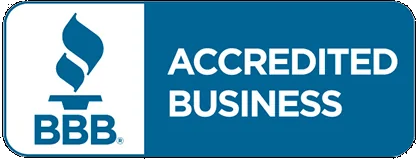

Acceptable Forms of Identification for Mortgage Closings
Find out which IDs you need for mortgage closing, how to ensure documents match, and what non-U.S. citizens should bring for a smooth, stress-free process.
Understanding Acceptable Forms of Identification for Mortgage Closings
When you reach the closing stage of your mortgage journey, you’re close to realizing your goal—whether it's buying a new home, refinancing, or getting a home equity loan. However, before the deal is sealed, one essential step is verifying your identity. To protect against fraud and confirm your personal details, lenders require you to present specific forms of identification at closing. In this guide, we’ll break down what types of ID are generally acceptable for mortgage closings, why they’re necessary, and tips for a smooth closing process.
Why Identification is Essential at Closing?
Mortgage transactions involve significant financial assets, which means they are vulnerable to identity theft and fraud. To mitigate this risk, lenders and title companies require borrowers to provide valid identification to confirm they are the rightful individuals involved in the transaction. This step also ensures compliance with legal and regulatory requirements, making the closing process safer for everyone involved.
Primary Forms of Acceptable Identification:
Generally, closing agents require two forms of identification: a primary ID and a secondary ID. The primary ID is typically a government-issued photo ID, while the secondary ID provides additional proof of identity and residence.
Here are common examples of each:
- Primary Identification
- State-Issued Driver’s License or ID Card: One of the most common forms of ID, a driver’s license or state-issued ID card is widely accepted. Ensure that it is current and not expired.
- U.S. Passport or Passport Card: For those without a driver’s license, a valid U.S. passport is also an acceptable alternative. It is universally recognized and ideal for proving identity in financial transactions.
- Military ID: Active-duty, reserve, or retired military personnel may use their military ID as their primary form of identification.
- Permanent Resident Card: Often referred to as a “Green Card,” this ID is valid for mortgage closings for non-U.S. citizens who are permanent residents.
It’s important that any primary ID includes a photograph, your full name, and is unexpired. An expired ID may delay or prevent closing, so it’s best to check that your ID is current well in advance of your closing date.
- Secondary Identification
- Social Security Card: Though it lacks a photo, a Social Security card is commonly used as a secondary ID to verify your identity.
- Health Insurance Card: A health insurance card with your name on it can sometimes be used as a secondary form of ID. Though not widely accepted, it may work alongside a primary ID if specifically requested by the lender.
- Bank Statement or Credit Card: A recent bank or credit card statement with your name and address can serve as secondary ID if necessary. Be sure the document matches the information on your primary ID.
- Utility Bill: Utility bills are often accepted as secondary identification. They should be recent (within the last 30-60 days) and include both your name and current address.
- Voter Registration Card: In some cases, a voter registration card can be used as proof of identity.
Combining a primary and secondary form of ID provides a comprehensive view of your identity and residency, ensuring all details match up.
Tips for a Smooth Closing Process:
To make sure your mortgage closing goes as smoothly as possible, keep these tips in mind:
- Check Expiration Dates: Confirm that both your primary and secondary IDs are current. If you notice an approaching expiration date, renew it as soon as possible.
- Name Consistency: Ensure the name on all documents matches exactly. Even minor discrepancies—like using a middle initial on one document but not another—can cause delays.
- Bring Backup Documents: If there’s any question about your primary ID’s acceptability, bring a backup form of identification. For example, if you plan to use a driver’s license, consider bringing your passport as well, just in case.
- Contact Your Mortgage Broker or Title Company in Advance: Different lenders may have slightly different requirements. Reach out ahead of time to verify exactly what documents are needed for closing. This will reduce the chance of last-minute surprises and give you time to gather any missing documents.
- Be Prepared for Additional ID Requests: In rare cases, additional forms of ID may be requested. For example, if you’re in a unique residency situation or recently changed your name, bring supporting documents, like a marriage certificate, to clarify your identity.
Special Considerations for Non-U.S. Citizens
If you’re a non-U.S. citizen, you’ll need a valid, government-issued ID like a passport from your home country, along with a Permanent Resident Card if applicable. Some lenders may require additional documents to verify your residency status and eligibility for the mortgage. It’s wise to confirm specific requirements with your lender early in the process.
Verifying your identity may seem like a simple step, but it's a crucial part of the mortgage process that ensures everyone involved in the mortgage transaction is protected. By knowing what forms of ID are required, double-checking that everything is current, and preparing in advance, you’ll help make the final stage of your mortgage journey as seamless as possible. As always, if you have any questions about what’s needed for your particular situation, reach out to your lender or closing agent for guidance.
At Onshore Mortgage, we’re committed to helping you navigate each step of the mortgage process with ease. Contact us if you have any questions about closing requirements or if you’re ready to take the next steps toward securing your dream home!

Latest Posts


Grant R. Menard MLO NMLS# 17308
CLICK HERE
Onshore Mortgage

Massachusetts Division of Banks NMLS#MB1995582
CLICK HERE
The information contained in this site has been prepared by an independent third party and is distributed for educational purposes only. This is designed to give helpful tips on the mortgage process and is not intended to give legal advice.
Information is considered reliable but not guaranteed. This is not a pre-qualification, pre-approval, loan approval or commitment to lend. We arrange but do not make loans.
© 2020 Onshore Mortgage, LLC. all rights reserved.


.webp)
